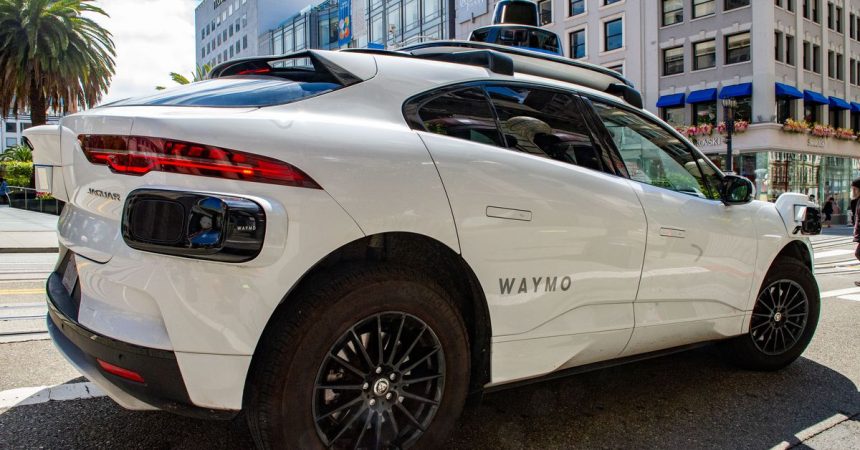Waymo, Alphabet’s autonomous driving unit, is embarking on its first international foray, sending a fleet of approximately 25 vehicles to navigate the bustling streets of Tokyo. While framed as a “road trip” focused on data collection, this strategic move signals Waymo’s broader ambitions to expand its robotaxi services beyond US borders. The initial phase will involve manually driven vehicles equipped with advanced mapping technology, gathering crucial data on Japanese traffic patterns, left-hand driving conventions, and the complexities of a dense urban environment. This data collection will be facilitated by Nihon Kotsu, a local taxi fleet operator, underscoring Waymo’s commitment to collaborating with local expertise. While the company remains tight-lipped about specific launch plans for a Tokyo-based robotaxi service, the initiative lays the groundwork for future expansion and underscores the company’s global aspirations.
The collaboration with GO, a popular Japanese taxi app, further suggests Waymo’s intention to integrate its autonomous vehicles into existing mobility platforms. This mirrors Waymo’s current strategy in the US, where its self-driving vehicles are accessible through Uber’s ride-hailing app in select cities. By partnering with established local providers, Waymo can leverage existing infrastructure and user bases, streamlining market entry and potentially accelerating adoption. This approach allows Waymo to focus on its core competency – autonomous driving technology – while relying on partners for fleet management and customer acquisition. The Tokyo project represents a significant step for Waymo as it aims to demonstrate the adaptability and scalability of its technology in diverse global markets.
Waymo’s current robotaxi operations in the US are steadily expanding, though the pace of growth remains measured. With approximately 700 vehicles deployed across several cities, including San Francisco, Los Angeles, Austin, and Phoenix, the company is gradually building its presence and accumulating valuable operational experience. The recent expansion into Austin and Atlanta through a partnership with Uber, as well as the planned launch in Miami in 2026, demonstrates Waymo’s commitment to broadening its reach and refining its service model. Alphabet CEO Sundar Pichai’s announcement of 175,000 paid trips per week, translating to roughly a million miles, highlights the growing utilization of Waymo’s autonomous vehicles. However, the overall market penetration remains relatively limited, indicating the challenges of scaling autonomous ride-hailing services.
In Tokyo, the initial data collection phase will be overseen by Nihon Kotsu employees trained as autonomous specialists. As Waymo gains confidence in its understanding of the local driving environment, the vehicles will transition to hands-free autonomous operation with a safety driver present. Whether this will eventually progress to fully driverless operations remains unclear, as Waymo has not disclosed its long-term plans. The vehicles’ operation will be geographically restricted to specific Tokyo neighborhoods, including Minato, Shinjuku, Shibuya, Chiyoda, Chūō, Shinagawa, and Kōtō, allowing for focused data gathering and a gradual expansion within the city. This cautious approach reflects Waymo’s commitment to safety and its understanding of the complex regulatory and societal considerations surrounding autonomous vehicle deployment.
Waymo’s expansion into Japan represents a bold move at a time when some companies are reevaluating their investments in autonomous vehicle technology. General Motors’ recent decision to curtail funding for its Cruise autonomous driving unit and shift focus towards driver-assist technology highlights the significant financial challenges facing the industry. Waymo’s commitment to international expansion signals its confidence in the long-term viability of autonomous vehicles and its determination to remain a leader in the field. While Japan has witnessed autonomous vehicle testing by several companies, it has not yet emerged as a major hub for the technology, trailing behind China and the US. This presents both an opportunity and a challenge for Waymo, as it seeks to establish a foothold in a relatively untapped market.
The Japanese auto industry, despite its global prominence, has focused its autonomous vehicle testing primarily outside of Japan. Toyota and Nissan, for example, are collaborating with local operators to deploy robotaxis in China. Waymo’s entry into Japan could potentially stimulate greater domestic interest and investment in autonomous driving technology, as local players observe and respond to the company’s progress. The data gathered from Waymo’s Tokyo road trip will not only inform its own future operations but could also contribute to a broader understanding of the challenges and opportunities associated with integrating autonomous vehicles into complex urban environments. This knowledge sharing could benefit the development of autonomous driving technology globally and potentially accelerate the adoption of self-driving vehicles in various markets.



